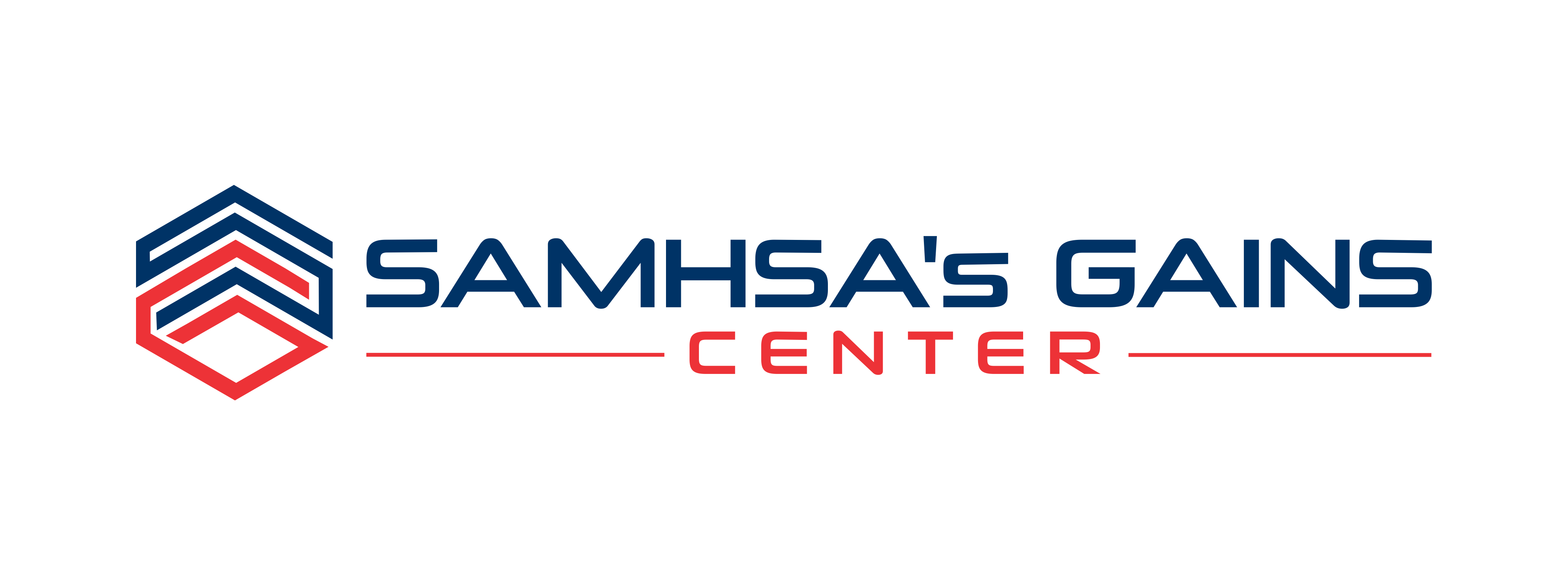SAMHSA’s GAINS Center for Behavioral Health and Justice Transformation, operated by Policy Research Associates, Inc., provides direct training and technical assistance to jurisdictions across the nation to better support people with behavioral health needs who are involved in the criminal justice system. The GAINS Center’s Learning Collaborative model brings together local jurisdiction teams to create coordinated local strategic plans and implementation strategies for a focus topic. Selected teams for each LC will work intensively to determine optimal ways to implement best practices and define success indicators for their respective Learning Collaborative. Each topic-specific Learning Collaborative engages subject-matter experts to work with jurisdiction teams during the implementation process and facilitate peer-to-peer sharing.
The Learning Collaboratives (formerly known as Communities of Practice, or CoPs) are designed to achieve four key objectives:
- Enhance collective knowledge of key issues and familiarity with the topic
- Understand promising, best, and evidence-based practices to address the topic and related issues
- Develop strategic plans that focus on the issue, including defining assignments, deadlines, and measurable outcomes to be reported
- Increase knowledge about the challenges and lessons learned in implementing strategies through peer-to-peer sharing via virtual convenings, monthly collaborative calls, and other virtual mechanisms
Teams are composed of local decision makers, selected through a competitive application process. For updates on future opportunities, join the GAINS Center mailing list.
Fiscal Year (FY) 2024 Learning Collaboratives
- Creating and Enhancing Community-Level Partnerships Among First Responders and Certified Community Behavioral Health Clinics (CCBHs): This LC will focus on establishing and strengthening partnerships among law enforcement and other first responder entities and CCBHCs at the local level, with a focus on providing first law enforcement-friendly options for addressing the acute needs of people who are in mental health crises.
- Diversion and Support for Transition-Age Youth: This LC will feature innovative diversion programs and implementation strategies at Intercepts 0 and 1 that support transition-age youth (16-25) who become involved with the criminal justice system.
- Implementing Risk-Need-Responsivity Principles in Adult Drug Courts and Reentry Programs: This LC will offer information on how to incorporate Risk-Need-Responsivity (RNR) principles and use RNR tools in drug court and reentry programming.
- Trauma-Informed Treatment Courts: The primary goal of this LC is for teams to develop strategic plans to advance policies and practices on trauma-informed treatment drug court programs.
Previously Selected Topics
FY 2023 Learning Collaboratives
- Trauma-Informed Treatment Courts
- Peer Integration in Treatment Courts
- Data-Driven Strategies for Reducing Frequent Systems Engagement
- Addressing the Housing Needs of People with Behavioral Health Conditions Who Are Justice-Involved
FY 2022 Learning Collaboratives
- Competence to Stand Trial/Competence Restoration
- Equity and Inclusion in Drug Treatment Courts
- Integrating Civilian-Led, Co-response, and Specialized Police Response Models
- Transition Reentry Strategies
FY 2021 Communities of Practice
- Building a Competent Crisis Care System at Intercepts 0-1
- Competence to Stand Trial/Competence Restoration
- Diversity, Equity, & Inclusion in Reentry
- Engaging Clients for Successful Reentry
- Polysubstance Use
Community of Practice National Webinar Series: Competence to Stand Trial
- Risk Assessment and Management in the Context of Competency Restoration [YouTube]
- COVID-19 in the San Luis Obispo County, California, Criminal Legal System: The Balance Between Managing Mental Health and Contagious Disease among People with Serious Mental Illness in Jail [YouTube]
FY 2020 Communities of Practice
- Competence to Stand Trial/Competence Restoration
- Equity and Inclusion in Adult Drug Courts
- Improving Recovery Support Services for People with Substance Use Disorders Returning from Jail or Prison
- Using the Sequential Intercept Model to Guide Medication-Assisted Treatment Implementation in Adult Drug Courts
FY 2019 Learning Collaboratives
- Competence to Stand Trial/Competence Restoration
- Data-Driven Equity & Inclusion
- Family Treatment Courts
- Improving Risk-Need-Responsivity Policies and Practice in Adult Drug Courts and Reentry Programs
- SAMHSA’s Eight Guiding Principles for Behavioral Health and Criminal Justice


